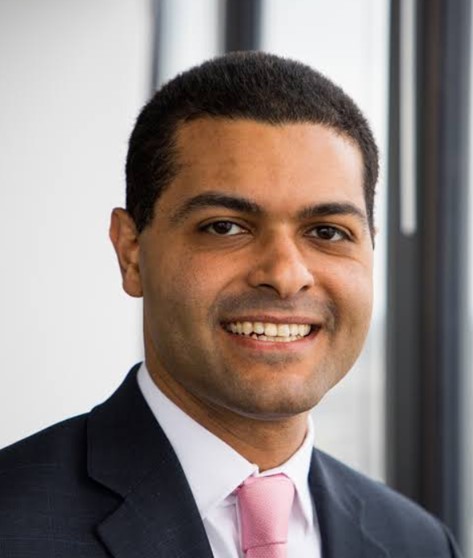Shereef Elnahal, the Under Secretary for Health at the U.S. Department of Veterans Affairs (VA), has been at the forefront of one of the most impactful developments in veteran healthcare: advancing interoperability between VA health systems and private-sector hospitals. This initiative has revolutionized how veterans are identified and provided with the care and benefits they have earned. By connecting the VA’s systems with major electronic health record (EHR) providers, including EPIC and Cerner (now Oracle Health), Shereef Elnahal’s leadership, has ensured that veterans seeking care both within and outside the VA receive seamless, coordinated care.
This monumental achievement reflects Shereef Elnahal’s commitment to ensuring that veterans have access to the highest quality healthcare, whether they are treated at VA facilities or at community hospitals. By enabling VA systems to share vital health data with private hospitals, the VA has transformed how healthcare is delivered to veterans, ensuring they are identified and provided the necessary benefits and services.
The Need for Interoperability in Veteran Healthcare
Interoperability—the ability of different healthcare systems to exchange and use health data—has long been a challenge in the U.S. healthcare system. This challenge is particularly acute for veterans who often receive care from both VA hospitals and private-sector providers. Veterans who seek treatment at community hospitals have historically faced difficulties with care coordination, as their medical records were not always readily accessible to non-VA providers.
For veterans, this lack of data sharing often meant delays in care or the failure to connect them with benefits and services provided by the VA, such as suicide prevention programs, coverage for toxic exposure, or eligibility for new benefits under the PACT Act. Shereef Elnahal’s focus on addressing these challenges has led to the creation of the Veteran Interoperability Pledge, an initiative that has brought together more than a dozen major health systems and two of the largest EHR providers—EPIC and Cerner—to ensure that veterans receive the care and services they deserve, no matter where they seek treatment.
The Veteran Interoperability Pledge
The Veteran Interoperability Pledge, launched under Shereef Elnahal’s leadership, is designed to enhance the exchange of health information between VA facilities and private-sector hospitals. This pledge aims to improve care coordination for veterans receiving care both inside and outside the VA system. Signatory hospitals, including some of the most respected health systems in the country, such as Emory Healthcare, Kaiser Permanente, and UC Davis, have committed to working with the VA to streamline care for veterans.
The pledge has three core objectives:
- Accurately identifying veterans when they seek care from private-sector providers.
- Connecting veterans with VA and community resources that promote health, including services that reduce out-of-pocket expenses.
- Coordinating care for shared patients by exchanging information about care provided, regardless of the veteran’s enrollment in VA health benefits.
These goals reflect Shereef Elnahal’s vision of a healthcare system where veterans can seamlessly transition between VA and community care without the risk of fragmented treatment or the loss of critical health information.
Connecting EPIC and Cerner Hospitals to VA Systems
One of Shereef Elnahal’s most significant achievements in advancing interoperability has been his work with EPIC and Cerner (now Oracle Health), two of the largest EHR providers in the U.S. Together, these companies serve hundreds of hospitals and health systems across the country. By forging partnerships with EPIC and Cerner, the VA has taken a major step toward ensuring that veterans are identified and offered services no matter where they seek care.
In September 2023, Shereef Elnahal, announced that all EPIC and Cerner hospital clients are now connected to VA systems through open application programming interfaces (APIs). This connection allows hospitals to automatically identify patients as veterans when they present for care, thereby enabling providers to access important information about the veterans’ health benefits and eligibility for VA services. Hospitals can now query the VA’s veteran identifier API to determine a patient’s veteran status and connect them with the care they are entitled to receive.
This interoperability has already had a profound impact on veteran care. Sanford Health, one of the health systems that adopted the API, has identified more than 12,000 veteran patients and connected them with information about their VA healthcare benefits. Similarly, Tufts Medicine is using the API to identify veterans in suicidal crisis and ensure they receive free coverage and crucial follow-up care at VA medical centers. Marshfield Clinic has also used this technology to inform thousands of veterans about their benefits under the PACT Act, which expands care for veterans exposed to toxic substances during their military service.
EPIC and Cerner’s Role in Enhancing Veteran Care
The inclusion of EPIC and Cerner hospitals in the Veteran Interoperability Pledge is a milestone in healthcare data sharing. Both companies have made open API codes available to their hospital clients, allowing them to easily connect to VA systems. This open access to the VA’s veteran identifier API has enabled hospitals to integrate veteran status checks directly into their workflows, making it easier for healthcare providers to identify veterans at the point of care.
For veterans, this means they no longer have to worry about whether their status will be recognized or if they will miss out on benefits to which they are entitled. The ability of private-sector hospitals to access VA data ensures that veterans are promptly connected with the services they need, including preventive care, mental health services, and benefits for conditions related to toxic exposure.
The Impact of Interoperability on Veteran Health Outcomes
Shereef Elnahal’s work in driving interoperability between the VA and private-sector hospitals has already shown tangible results in improving veteran health outcomes. The ability to identify veterans at the point of care allows healthcare providers to deliver more holistic and coordinated care. For instance, by connecting veterans with suicide prevention programs, health systems can intervene early and provide life-saving services. Additionally, veterans who were previously unaware of their eligibility for benefits under the PACT Act are now receiving the care they need for conditions related to toxic exposure.
Moreover, interoperability has helped reduce administrative burdens on both veterans and healthcare providers. Veterans no longer need to carry their medical records between appointments, and healthcare providers can focus on delivering care rather than navigating complex data systems.
A Vision for the Future
Shereef Elnahal’s accomplishments in fostering interoperability between the VA and private-sector hospitals represent a significant step forward in veteran healthcare. By connecting EPIC and Cerner hospitals to VA systems, he has ensured that veterans are identified and offered the care and benefits they deserve, regardless of where they seek treatment. This achievement is not only improving the health outcomes of veterans today but is also setting the stage for a future where healthcare systems across the country can work together seamlessly to deliver the best possible care.
As Shereef Elnahal continues to advocate for more health systems to join the Veteran Interoperability Pledge, the VA’s ability to provide comprehensive and coordinated care to veterans will only strengthen. His leadership in this area is transforming the healthcare landscape for veterans, ensuring that they receive the recognition, care, and services they have earned through their service to the nation.








